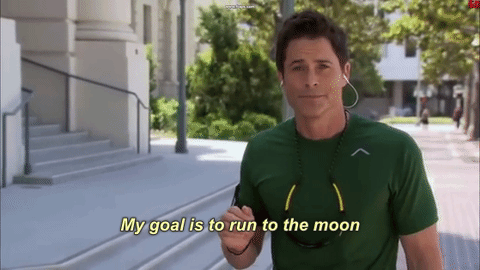Should I Take An Extra Rest Day?
If you’re typically a motivated athlete (motivated enough, say, to hire a coach and read articles to help you improve your training) and you’re asking yourself this question, that could be a good sign that you might need a little time off.
While we recommend most athletes take one or two days off a week, that magic number can vary with other life factors like stress, sleep, nutrition and fatigue. Rest days are your first line of defense against injury, burnout, and worse – OTS. It can be tough to tell if you’re headed towards overtraining because by the time that it’s obvious, it’s way too late. Big picture, a couple of tough runs a week is okay and can usually be course-corrected through rest, a little extra sleep and maybe a dietary tweak. But, a gradual decline in run quality, and lingering fatigue, isn’t okay.
Too Much Rest?
Rest can be a bit of a magic bullet for lots of issues, but it can also have diminishing returns if you rest too much, or don’t address underlying problems related to fatigue. The key components of success are frequency and consistency. Taking a day off can negatively impact blood volume, which leads to fatigue (though it’s negligible with one day off). That’s why we always recommend a shakeout the day before a race. Packing too much mileage into too few days of running can also raise your risk of injury, and is less helpful for stimulating training adaptations.
With those caveats in mind, here’s what to think about if you might need a bonus rest day.
Try The 15-Minute Rule
Motivation will ebb and flow, and that’s totally okay and normal in an athletic life. You can’t channel your inner Chris Traeger every day.
Sometimes, you just might not be feeling it. On those days, barring any outside explanation (work stress, lack of sleep or the like), give yourself the chance to get out for 15 minutes. If you can rally and put together 15 minutes, great! If you can’t get your head into it, and 15 minutes in still feels like an eternity, turn around and head back home. It’s better to miss one run that to come back the next day even deeper in a fatigue hole after just going through the motions.
Heart Rate Doesn’t Match Perceived Exertion
Though it may not feel scientific, perceived exertion or effort is one of the most accurate ways to evaluate your effort. Make sure any HR data you’re using is coming from a reliable source and NOT a wrist-based sensor. If you feel like getting to your usual cruising pace is taking a monumental effort, that could be a sign that you should do a recovery ride, walk or just take the day off. We’ve all had a day where you have to work extra hard just to make a normal run happen, but those days would probably best be spent with your feet up on the couch. Working harder to make less happen is not a training adaptation that we’re aiming for. The point of training is not to teach the body to slog or to develop fatigue resistance (basically, getting really good at eeking out low-quality workouts when you’re tired). We want the majority of our miles to feel really easy, and if you just can’t seem to find easy, it’s best to take a step back so you can come back fresh.
Fatigue
Some fatigue is normal and a healthy part of tough training. When you’re leveling up in training, that should come with a little extra fatigue, but it shouldn’t be the new normal. How much fatigue you’re able to tolerate will vary depending on your background, and what else is going on in your life. It can be a precursor to overtraining or OTS, but before it gets to that point fatigue can affect cognition, behavior mood and athletic performance. Fatigue doesn’t just suck for training, it sucks for human-ing.
Fatigue could be heavy eyelids, waning motivation (when you’re typically really motivated) and feeling slow on the uptake or laggy at work. In training, fatigue could be heavy legs and needing lots of time and effort just to get going every day. That’s not mental weakness, and it’s not something you can just get over with enough willpower. Those feelings usually have a physiological basis, and you can’t just effort your way out of fatigue.
Fatigue can follow a dip in activity since rest can reduce cardiac output, and that’s why we give athletes a few easy runs to get back into things after time off.
If you’re feeling extra tired for 36 hours, make sure there’s a stress-based explanation, like a tough day at work, a hard workout or a global pandemic. If there’s a solid reason you’re feeling tired, rest or run easier. Dial your training back until you feel good, like, STOKED to run again. For your first run back, try to yog it out (a yog is a run that’s intentionally slow, so slow that someone could pass you if they were pushing a shopping cart uphill).
If you’re not rallying after three days, back totally off and consider seeing a doctor unless there’s a clear reason for stress.


